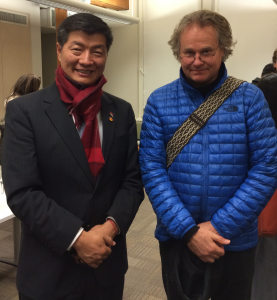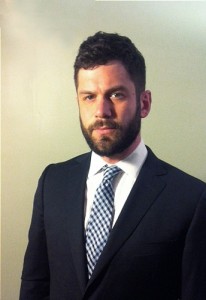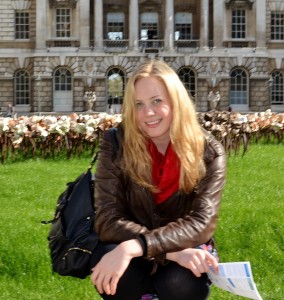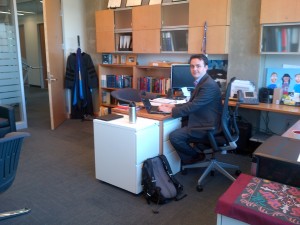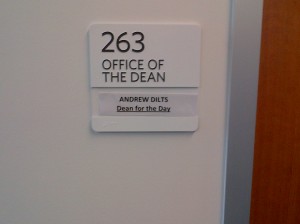Submitted by Emmanuel Fung
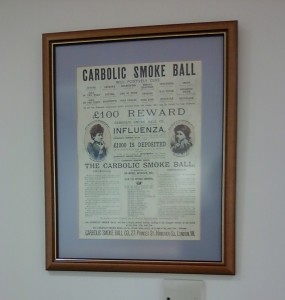
The Carbolic Smokeball Advertisement at HKU Law Library
In the summer following my first year at UBC Law, I had the opportunity to travel to Hong Kong and South China to perform research on trade and labour practices in the manufacturing export industry.
Professor Ljiljana Biukovic at the University of British Columbia supervised the research, which was performed under the umbrella of the Asia Pacific Dispute Resolution project at UBC’s Institute for Asian Research. The goal was to improve Corporate Social Responsibility practices for Canadian importers.
Funding for the research was provided by UBC Law’s Travel Abroad Research Grants, which enables two UBC Law students (of any year) to perform research on a topic of their choosing. Students may design their own projects, or may choose from a list of proposals sponsored by law professors.
The following blog entry details a few of the things I saw in China. I would really encourage all UBC Law students with an interest in research abroad to apply for this fantastic opportunity next year. I would be more than happy to share more about my experiences with any students: emmanfung@gmail.com.
************************************************
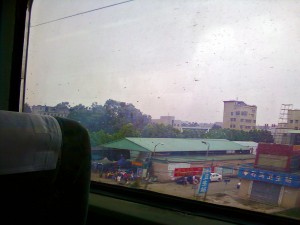
Looking out the window of a train on the way to Guangzhou
It is around nine or so on a Wednesday night and I am in the backseat of a Dodge Caravan on my way to Hong Kong’s border with Shenzhen, China eating a Big Mac and fries and sipping a Coke.
My guide, a factory owner from South China, sits beside me and has four cell phones arrayed in front of him. He’s mechanically switching the SIM cards in his phones as we prepare to cross the border.
Armchair economists compare the price of Big Macs in locales around the world to map out inflation and currency parity. Coke consumption is loosely, but positively related to a country’s wealth. I’m not sure what the French Fry index signifies.
When I was here a year ago, the cost of a Big Mac meal was 20HKD or about 2.50USD (see proof above). The price for the same burger, fries and soft drink was now 28.2HKD. That’s a forty percent increase in price. To compare, 2- 3% inflation is generally considered a healthy rate.
We cross the border, pass through customs and we meet another driver nearby. This Buick will take us to a prefecture of Shenzhen. I am told that it is another two hours to our destination. Along the way, I contemplate Chinese inflation and the econometrics of Happy Meals and am lulled to a happy sleep.
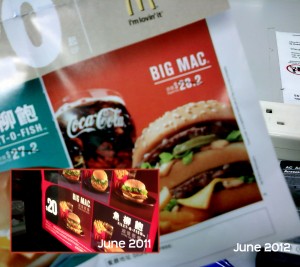
The Price of a Big Mac Meal in 2011 and 2012
In my sleep, I get the sensation that I’m falling, or that I’m paused, midair, after tripping. And then I’m jolted awake. I guess that the van had dropped two inches or so as it crossed from one section of the road to the next. This happens again as the van soon crosses another section of road. I stare out the window into the dark and it takes a few moments before I am able to make out shapes passing us and before I realize how quickly we’re moving.
I don’t think emergency services are called if there’s an accident at this speed. They just bring a bulldozer.
I watch as we pass vehicle after vehicle on the highway. The only time we slow down is when we almost die – like when the truck we happen to be tailgating brakes. I get the feeling that the driver gets off from the speed. A lime green Toyota CRV pulls ahead of us but we soon pass it again.
“Money can’t buy happiness, but without money you’ll surely be unhappy.” My friend had shared this Chinese proverb with me the day before.
I am a bit on edge and can’t sleep so I work through questions that I want to ask people tomorrow. I had prepared a guide when I was in Vancouver, but my research directions have changed a bit since then. I am not sure exactly how to work my questions and I’m worried I won’t be able to properly translate my questions into Chinese. I think about the proverb my friend shared and wonder if I can tease a question out of it.
Our driver flashes his high beams to alert the driver of a truck that we’re about to pass. It’s a safety precaution, you see. Or maybe he’s just hoping the driver will get out of his lane.
Then, I have giddy understanding that I’m at the frontier of the world economy.
The first and last two minutes of a flight are the most dangerous. On landing, all kinds of horrible things can go wrong. On takeoff, the structural pressure on the plane is greater than any other time in the flight. I always feel a moment of trepidation just as the plane leaves the ground. This is because I know that in that moment, the pilot must decide whether to commit absolutely to the take off, or to set the plane down safely.
In that moment, the immense weight of the plane becomes obvious as it struggles against gravity and vibrates uncontrollably. The notion that the heavy plane is about to rise thirty thousand feet seems absurd. Then, the pilot commits to the takeoff and lets the jets roar. The incredible and unstoppable power of the jets under the wings is felt as the vibrations stabilize, your head pulls back slightly from the acceleration and any doubt disappears.
This is how I feel now as the Buick rumbles and bounces along the highway. I am being jetted to my destination – a production municipality in Guangdong – by an unstoppable economic force.
This Buick and the highway we are speeding along are vital pieces of infrastructure. They carry my sleeping friend. I’m sure he has not had much sleep recently because he told me that he’s been to four countries over the last two days on business. His factory produces the kind of secondary materials that are necessary for construction and I conclude that his insane schedule bodes well for the global economic recovery. He is a small, important cog in a global economic engine.
The next day, someone told me that the drive we completed in two hours the night before should have taken at least three. Every business owner I later spoke with underscored the stress, the business of manufacturing in China and trading with the world. We kept a breakneck pace that night because there was no practical alternative.
I imagine that no vehicles ever passed us because they were all well ahead.
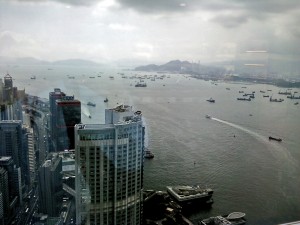
Container Ships in the Hong Kong Harbour from the International Finance Centre - Many Chinese goods pass through Hong Kong's ports
The inflation and the rapid pace of change in China have been accompanied by a large volume of journalism and academic writing. In the research on corporate social responsibility, scholars have observed the “increased business focus” and “hyper-competitiveness” of small and medium sized firms. Speaking to business people in Hong Kong and South China, I felt this urgency over-and-over again in a way that these sanitized descriptions could not capture. More than anything else, this sense of pressure and urgency changed the way I understood and approached my work.
At the same time, the academic literature fails to meaningfully convey the “increased salience of personal values in decision making processes”. Likely, I’ve read too little, but I’ve yet to encounter adequate mention of the generosity or amiability of business persons in the academic literature. This culture and attitude contrast strongly from the hard and fast bargaining of business.
I remember one occasion where ten or so of us were chatting after lunch – business partners, an export advisor, a major client, an ex-employee now subcontractor, someone’s friend, someone’s brother. The languorous lunch – a twelve course affair – was a daily ritual for them and at other factories I’ve visted. As usual, a few were enjoying a post-prandial smoke. Often as is the case when I – the foreigner – am present, the conversation turned to my motherland.
Tony our host (he pays for the meal) is considering sending his son to study abroad somewhere. “He gets teary eyed at the thought” his brother mocked him gently. “Imagine what it’ll be like when it’s his daughter’s turn.” Everyone laughs. “There is too much discrimination in America and Britain, but I hear in Canada all you need is Chinese. English isn’t necessary to get around”. The comment was addressed to me. I answered with a joke and they continued, satisfied. “What if he comes back with a foreign girl?” “Best to keep him at home, then.” Tony looked pleased at that.
“Why would want anyone immigrate?” Tony then asked rhetorically. “Everyone who immigrates eventually returns because they’re so bored. Here I get to hang out every day. I have all my friends and family here. Life as an expat is boring, there is no brotherhood” (this word is particularly difficult to translate). The table agreed.
And it’s true. Later, one of our lunch companions, a trader from Hong Kong, said to me privately: “When people wonder what I do when I’m in China for business, I tell them that I’m just here to mooch food and drink.”
I have rarely experienced that level of openness and amiability. Like myself, some were new additions to the group. Others were old hands and knew the lunch time routine – unabashed moochers. Not that Tony minded. All were business companions of some form who just happened to be hanging around the factory when noon rolled around. Invitations to lunch all around, every day – Tony’s treat. Everyone chatted like old friends. That is the culture there.
I returned to Hong Kong three days later and three lunches fuller. The night I returned, I lay in bed feeling very grateful and sad that I’ll likely never find myself around Tony’s factory at noon, again.
These two experiences – and many others I lack space to describe – challenged and altered the way I thought about trade and corporate social responsibility. Firstly, I found that unless CSR complemented and improved trade practices, it would have absolutely no resonance with small factory owners. CSR must to be simple, practical and reduce stress for manufacturers, not increase it. Second, one overlooked advantage of CSR for Canadian importers was the opportunity to develop closer relationships with manufacturers. Though I have not described them here, I learned firsthand about the unexpected advantages of good feeling between small businesses in China. For importers to gain these advantages, CSR must facilitate these relationships. It must not be overly aggressive, but should communicate good will.
Back in the van on the way to Shenzhen, one of my sleep-deprived friend’s many cellphones rings and wakes him. He rises to answer it.
“Hello?” It’s a North American client he met yesterday. “Yes yes, we have your new specifications. I will email you the price tomorrow. Ok? Thank you, bye.” Before he settles in to sleep again, he looks at me and asks if I was able to sleep. “Just a bit, thanks.”
I should mention that while we were still in Hong Kong, he had asked whether I was hungry. I insisted that I had just eaten, but he ignored me and told the driver stop anyway. On our breakneck journey for the border, there was no time to sit down for a meal. So…Macdonald’s for everyone. His treat, of course.
I am extremely grateful to the donor of the Travel Abroad Research Grant for the funding for this research, for the incredible generosity and hospitality of the friends and business persons mentioned in this piece, to my supervisor Ljiljana Biukovic for her time and guidance, and to all those who have been so open with their time, support and expertise.
